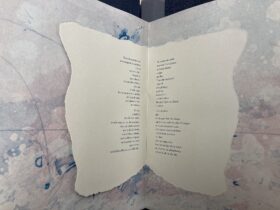Histoire philosophique et politique des établissemens et du commerce des Européens dans les deux Indes / by Guillame-Thomas Raynal. Londres: [s.l.]. 1792.
The Histoire philosophique et politique des établissemens et du commerce des Européens dans les deux Indes is primarily the work of Guillaume-Thomas Raynal, a French writer and political philosopher. Raynal’s book is a history of European colonization in the East and West Indies, South America, and North America. The first edition of this work was published in 1770 in Amsterdam, and it consisted of only 4 volumes. Raynal’s work was an immediate success with his Enlightenment contemporaries as Raynal was one of the first to denounce European colonialism, the exploitation of indigenous populations, and slavery. Cet ouvrage connut un vif succès auprès des philosophes de l’époque des lumières et fut condamné au feu en 1781, Raynal dut se réfugier en Suisse et en Prusse.
From 1770 to 1820, this multi-volume work was revised and published 30 times and in several different languages including English and Italian. With each new edition, the text was expanded and augmented to include sections written by several of the leading intellectuals of the Enlightenment, including Diderot and the Baron d’Holbach.
Because the work supported the principles of revolution as a basic right and promoted less than favorable views of the monarchy, the French Parliament condemned l’Histoire as impious. The Roman Catholic Church officially banned the book in 1774 and ordered all of it copies to be burned in Paris by the public executioner. These reactions to Raynal’s work led to his exile in Switzerland from where he traveled to the court of Frederick the Great in Prussia and then later to Petersburg to the court of Catherine the II. In 1787, Raynal was permitted to return to France, but not to Paris. After the revolution, Raynal returned to Paris and later died in 1796. Although his work was criticized by his contemporaries as being reactionary, both in Europe and the American colonies, Raynal’s work has been credited for helping set the foundation for 18th and 19th century political thought
The Haggerty Collection’s copy was printed in 1792. This edition consists of 17 volumes, of which16 volumes are of text and the 17th is an atlas containing 49 engraved maps relating to Europe, Asia, Africa and America, and 23 folded tables of statistical data on trade with the East Indies. The Haggerty Collection’s copy is considered to be in fine condition, although incomplete as it is missing the atlas. The volumes have a quarter calf binding with Fantasy pattern marbled paper covered boards. The binding is not original and most likely the set was rebound in the mid to late 19th century as the Fantasy marbled paper pattern was not manufactured until then.
Each volume has a highly detailed engraved frontispiece representing an important event, natural or the result of human actions, which had occurred in one of the French colonies. The first engraving is of the death of the British officer, Major General James Wolfe at the Battle of the Plains of Abraham in 1759. The second is of a hurricane that devastated several islands in the Lesser Antilles, and the third engraving is of a murder that occurred on the island of Saint Kitts. These examples of engraved illustrations are extremely rare in the collection.
Of particular interest to scholars is the false imprint information. This edition was not printed in London. Rather, it was printed in Paris, and although the printer was not listed on the title page, it is believed to have been printed by Cazain and his printing house. This false imprint was an attempt to protect the identity of the printer as Raynal was still in exile at the time of the printing. False imprints are fairly rare to find, and they can make life difficult for curators, but they add an intrinsic value to the bibliographic history of such works.
Call number: D22 .R33 1792 t.1-16, The William J. Haggerty Collection of French Colonial History, Special Collections.
The William J. Haggerty Collection is the former library of the Union coloniale française, a French colonial lobby organization. The Haggerty Collection is housed in the Special Collections department of the Binghamton University Libraries. the departmentis open to the public, Monday – Friday from 10:00 am – 4:00 pm, and by appointment.










